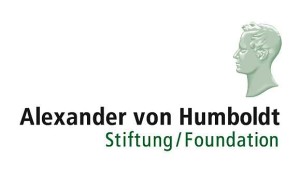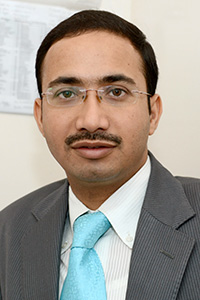Humboldt-scholar researches on nasolacrimal ducts
The Faculty of Medicine is glad to welcome another scholar from the Alexander von Humboldt Foundation at the Chair of Anatomy II: As part of his Humboldt Research Fellowship for experienced researchers, Dr. Mohammed Javed Ali aims to better understand the function and pathophysiology of the nasolacrimal ducts. When tears form, lacrimal fluid is discharged from the surface of the eye via the nasolacrimal ducts into the nose. Functional problems in this system are quite common. For example, 1 out of 100 newborns suffer from watering eyes, with tears streaming down their cheeks. Inflammation, stone formation, tumors and injuries are frequent causes of dysfunction in the nasolacrimal ducts. As part of his Humboldt Research Fellowship for experienced researchers, Dr. Mohammed Javed Ali aims to better understand the function and pathophysiology of the nasolacrimal ducts. Since it has already been shown that hormones often play a role in the disorders of the lacrimal drainage system, Dr. Javed Ali of the Chair of Anatomy II (Prof. Dr. F. Paulsen) will mainly focus his research on the composition of the hormones and their effect inside the lacrimal ducts.
 Dr. Javed Ali is an internationally known scientist in the field of dacryology which deals with disorders of the nasolacrimal ducts and the tear drainage system. He heads the Govindram Seksaria Institute of Dacryology at L.V. Prasad Eye Institute (LVPEI) in Hyderabad, India. It is the only institute in the world that exclusively deals with disorders of the nasolacrimal ducts. Javed Ali is trained in the field of ophthalmic plastic surgery. At 32, he has already published more than 200 articles and is a member of the editorial board of five major scientific journals.
Dr. Javed Ali is an internationally known scientist in the field of dacryology which deals with disorders of the nasolacrimal ducts and the tear drainage system. He heads the Govindram Seksaria Institute of Dacryology at L.V. Prasad Eye Institute (LVPEI) in Hyderabad, India. It is the only institute in the world that exclusively deals with disorders of the nasolacrimal ducts. Javed Ali is trained in the field of ophthalmic plastic surgery. At 32, he has already published more than 200 articles and is a member of the editorial board of five major scientific journals.
